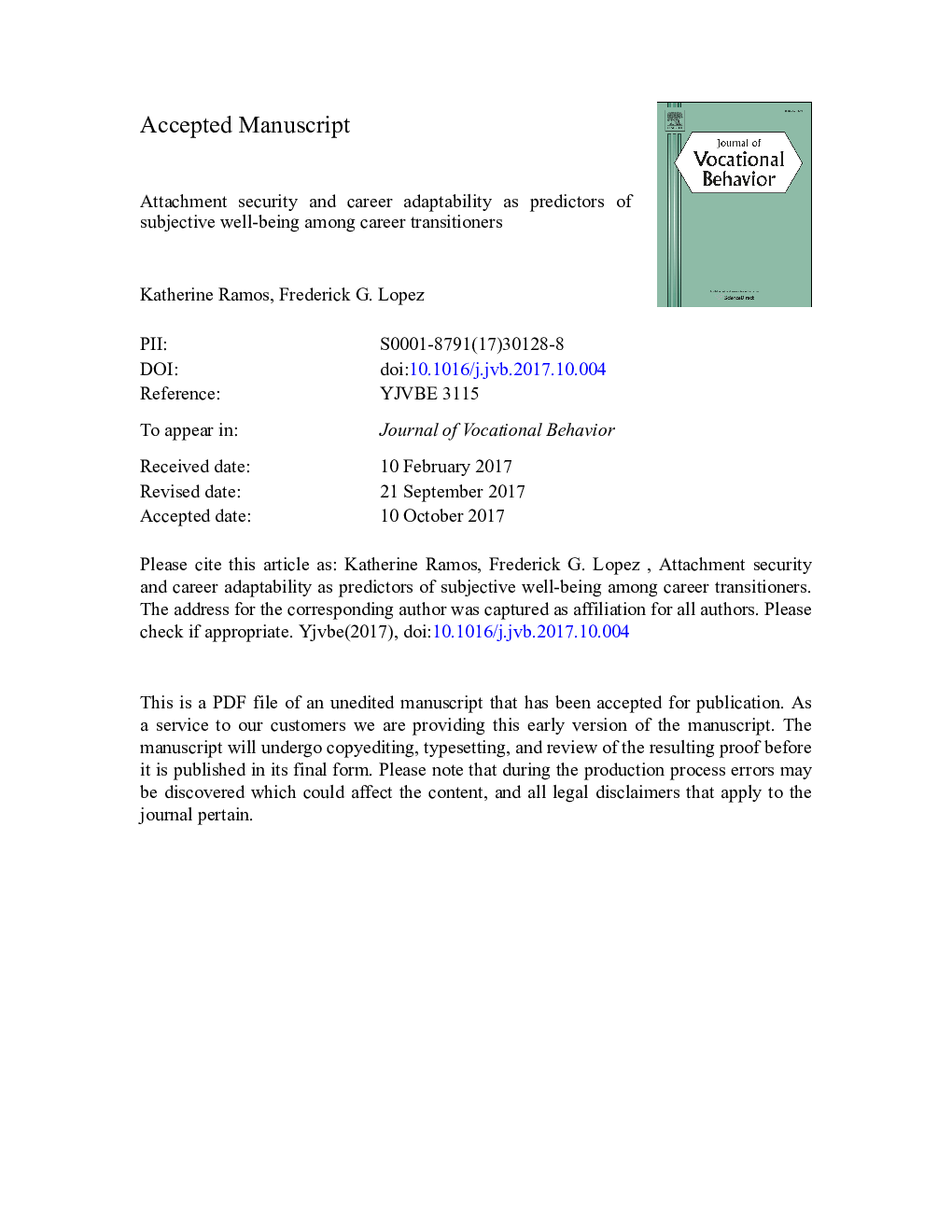| Article ID | Journal | Published Year | Pages | File Type |
|---|---|---|---|---|
| 7247373 | Journal of Vocational Behavior | 2018 | 42 Pages |
Abstract
One's career adaptability can provide valuable information regarding the quality of their life satisfaction and life meaning during important career transitions. To date, however, few studies have examined the dispositional antecedents of career adaptability and no studies have specifically explored whether these relationships operate similarly or differently across distinct groups of adult career transitioners. To address this gap, we had 298 young adults (i.e., college seniors or recent graduates poised to enter the workforce) and 169 older adults (i.e., workers who were either contemplating retirement or recently retired) complete measures of adult attachment orientations, career adaptability, life satisfaction, and life meaning. Results demonstrated that attachment security and career adaptability were associated in expected directions with, and explained unique variance in, each of our indicators of subjective well-being, and that career adaptability scores mediated observed relations between adult attachment insecurity and transitioners' well-being. Exploratory analyses further showed that, for both groups of transitioners, career concern and control strategies emerged as significant mediators of these relationships. Future research directions and practical implications of our findings for counseling interventions with career transitioners are discussed.
Related Topics
Social Sciences and Humanities
Business, Management and Accounting
Marketing
Authors
Katherine Ramos, Frederick G. Lopez,
